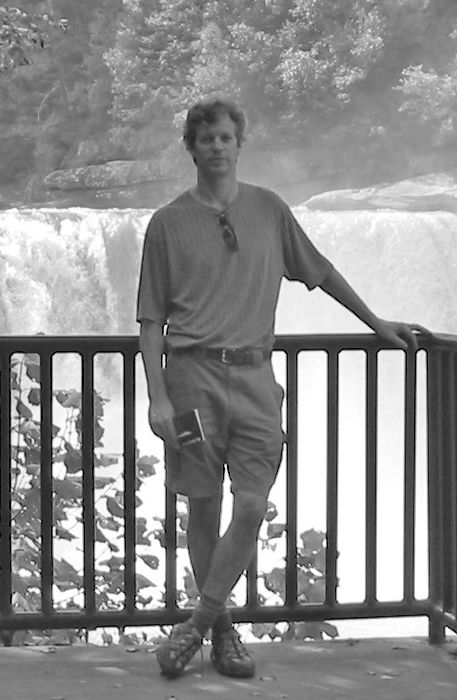 Father’s Day
Father’s Day
by Bill Allen
This year, for the first time since I was born, I have no father to celebrate with on Fathers Day. After a long, happy life, Dad passed away last winter at the young age of 92. As one of three children, I was asked to say a few words at his funeral. My first thought was “Not gonna happen!” In the way of writers’ everywhere, I preferred putting words down on paper rather than voicing them to a crowd, particularly at a time when my emotions were sure to be raw with grief.
My sister was already preparing a thorough speech of her own, highlighting Dad’s life, so I needed something different. I decided to put together a list of a few things I learned from Dad, figuring it was something I could safely read without breaking down. I was of course wrong, but now, with a little time to process, I think it’s safe to dig out my list and dust it off for Fathers Day. A lot of what Dad gave me had to be taught, whether through words or by example. I’m not sure if all of those things were for the best, but Dad thought they were important, so here are a few of them. Who knows? Maybe one or two apply to your fathers, too.
Dad taught me how to fix just about anything.
He taught me a love for solving puzzles.
He taught me to drive at least five miles per hour over the speed limit, so I don’t hold up traffic, and to pull into the middle of the intersection when waiting to make a left turn, so people can get around me.
He taught me to spot a deer standing still in the woods, and to walk slowly and soundlessly, so I don’t scare away the wildlife.
He taught me that if I watch the ground when I walk, I’ll find all the stuff people drop.
He taught me how not to make lemon meringue pie.
He taught me not to take life too seriously.
He taught me that I should keep busy during my free hours, but that it’s okay to take time in the evening to sit in the dark and just listen.
He taught me to spin the car around a few times on purpose after the first snowfall of the season.
He taught me that early morning is the most under-appreciated time of day.
He taught me that when you’re truly thirsty, nothing tastes better than water.
He taught me to listen before I speak.
He taught me to make fun of my own faults, and never anyone else’s.
He taught me to turn out the lights when I leave a room.
He taught me to pick up a broom and sweep when I’m out of things to do and waiting for the boss to return.
He taught me to give my body time to heal itself before I run to the doctor.
He taught me not to believe everything I’m told (unless he was the one doing the telling).
He taught me that not all kids have families like ours, so they might have different views of what is right and what is wrong.
He taught me that what I think is important will change as I grow older, and that truth is almost always disproved with experience.
He taught me that a promise made is a promise kept.
He taught me to know with certainty that if something can be accomplished, I can accomplish it.
He taught me to keep my head down during my golf swing.
He taught me to see the humor in everything. I think more than anything he wished he could have been the type to laugh at a funeral.
And he taught me that if you truly love someone, you’ll never need to tell them.
What I’m not sure he realized is that it’s okay to tell them, too.
I love you, Dad.
Bill Allen is the author of the Journals of Myrth.

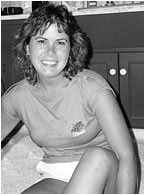 December 7th, 1941 was my father’s 15th birthday. He was out in the park across from his house playing football with his neighborhood buddies when his mother called him in. He wasn’t happy that his play was being interrupted, but you didn’t mess with my grandmother.
December 7th, 1941 was my father’s 15th birthday. He was out in the park across from his house playing football with his neighborhood buddies when his mother called him in. He wasn’t happy that his play was being interrupted, but you didn’t mess with my grandmother.


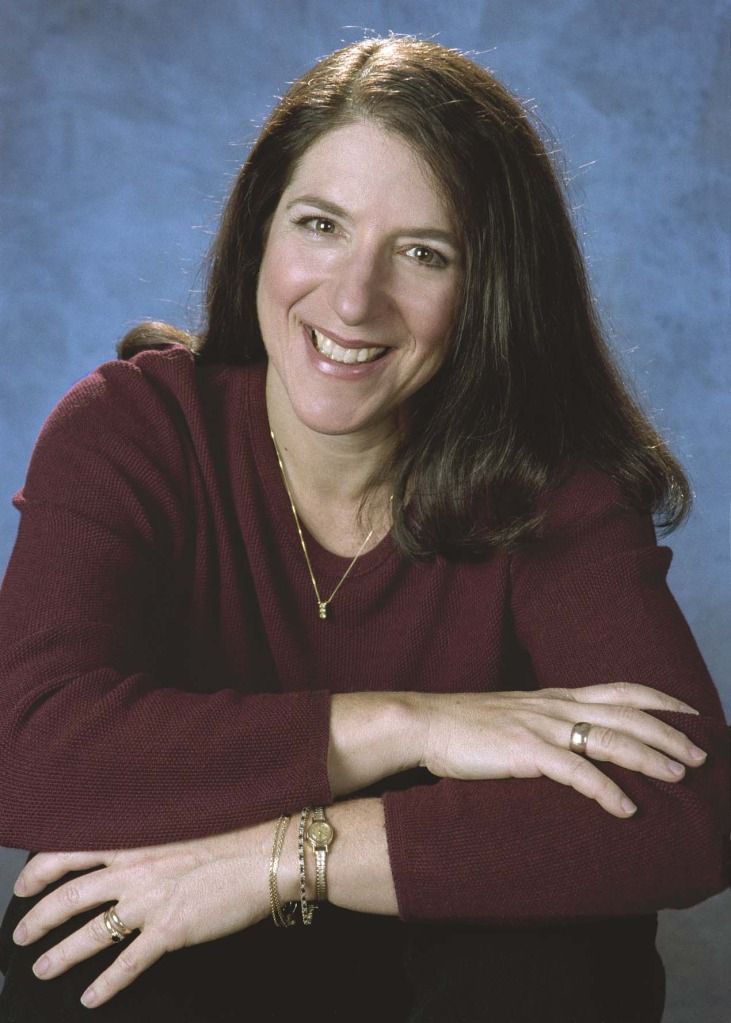
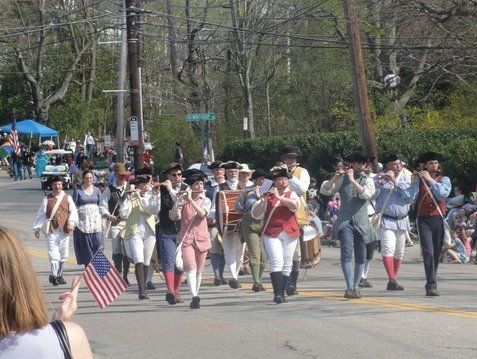
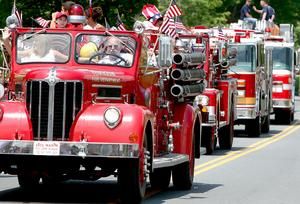 Of course, the town is firmly ensconced in the 21st century. We have WiFi. We have supermarkets. We have traffic jams—oh, man, do we ever have traffic jams! But we’re still a small town, with a small-town Fourth of July parade. It features fire engines clanging up the main road to the town center, sirens blaring. A caravan of antique cars. Floats sponsored by local businesses. Floats sponsored by churches, scout troops and the police department’s D.A.R.E. program, designed to help keep kids from using alcohol and drugs. Children on bicycles adorned with crepe-paper streamers. Politicians carrying banners and shaking hands. The parade usually ends with a wagon drawn by a team of huge, regal Clydesdales.
Of course, the town is firmly ensconced in the 21st century. We have WiFi. We have supermarkets. We have traffic jams—oh, man, do we ever have traffic jams! But we’re still a small town, with a small-town Fourth of July parade. It features fire engines clanging up the main road to the town center, sirens blaring. A caravan of antique cars. Floats sponsored by local businesses. Floats sponsored by churches, scout troops and the police department’s D.A.R.E. program, designed to help keep kids from using alcohol and drugs. Children on bicycles adorned with crepe-paper streamers. Politicians carrying banners and shaking hands. The parade usually ends with a wagon drawn by a team of huge, regal Clydesdales.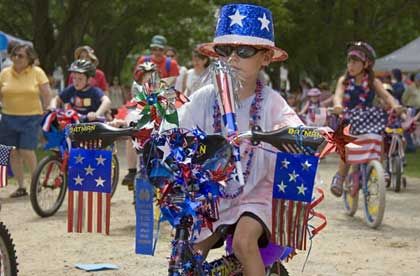 Books. Jill in Goodbye to All That lives in Rockford and reserves the “Old Rockford Inn” for her daughter’s bat mitzvah reception. My mystery series, which Bell Bridge Books will launch next year, is also set in Rockford, where the heroine—inspired in part by my younger son’s fourth-grade teacher—plays recreational soccer on a team called the Rockettes and occasionally drops by the “Old Rockford Inn” for a drink.
Books. Jill in Goodbye to All That lives in Rockford and reserves the “Old Rockford Inn” for her daughter’s bat mitzvah reception. My mystery series, which Bell Bridge Books will launch next year, is also set in Rockford, where the heroine—inspired in part by my younger son’s fourth-grade teacher—plays recreational soccer on a team called the Rockettes and occasionally drops by the “Old Rockford Inn” for a drink.

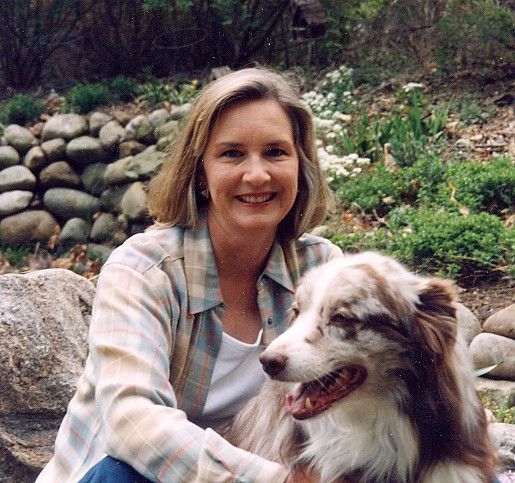

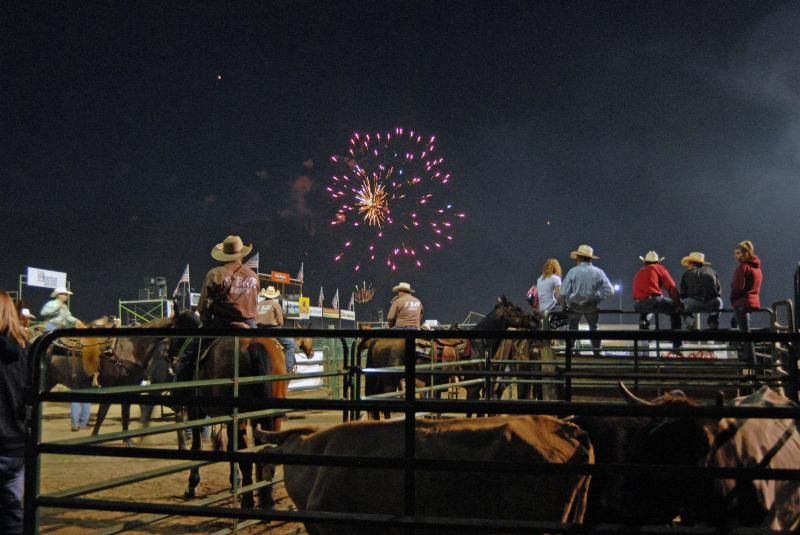 On “Patriot Night,” July 3, the rodeo committee does a fundraiser for the Wounded Warrior Project. On the Fourth, the evening rodeo is followed by fireworks, made especially wondrous by the North Dakota night sky. Most of my books are set in the Dakotas, where the sky is everywhere you look, and the stars are gloriously bright and abundant. You have to see it for yourself. Day or night, sunrise or sunset, no IMAX or Omni Theater or Biosphere will ever do justice to the Dakota sky. It’s “America the Beautiful” in real life, real time.
On “Patriot Night,” July 3, the rodeo committee does a fundraiser for the Wounded Warrior Project. On the Fourth, the evening rodeo is followed by fireworks, made especially wondrous by the North Dakota night sky. Most of my books are set in the Dakotas, where the sky is everywhere you look, and the stars are gloriously bright and abundant. You have to see it for yourself. Day or night, sunrise or sunset, no IMAX or Omni Theater or Biosphere will ever do justice to the Dakota sky. It’s “America the Beautiful” in real life, real time.
 DOWN WITH NARNIA. UP WITH GLOME.
DOWN WITH NARNIA. UP WITH GLOME.



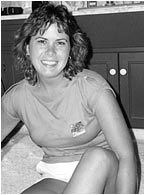
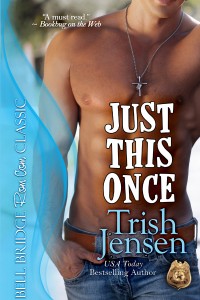










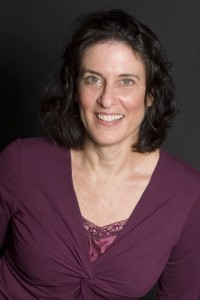
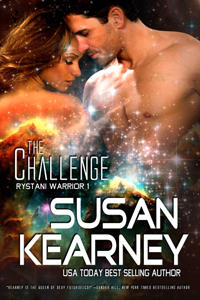






 DESK DEFINITION
DESK DEFINITION





